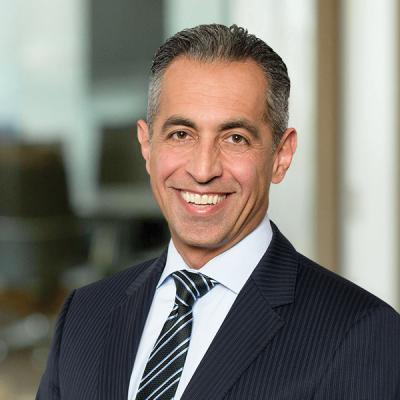The U.S. Trademark Office Adopts New Rule Requiring Appointment of U.S. Counsel to Represent a Non-US Domiciliary in Trademark Matters
Effective August 3, 2019, the United States Patent and Trademark Office (USPTO) will require foreign entity applicants, registrants, or parties to a trademark proceeding whose domicile is not located within the United States or its territories to be represented by qualified U.S. counsel (i.e., an attorney who is an active member of a state bar in the U.S.). “Domicile” has been defined by the U.S. Trademark Trial and Appeal Board as “the place where one is permanently fixed for…business; … an institution or place of business, with its fixtures and organized staff.”1
Qualified U.S. counsel must provide his or her bar information for a trademark application to be complete and so that the applicant can participate in further proceedings before the Trademark Office.2 Non-compliance by a foreign domiciliary applicant will result in the applicant receiving an Office Action requiring the appointment of qualified U.S. counsel. A non-compliant application will receive a filing date, but will not advance until U.S. counsel is appointed. The applicant will have six months to respond. A failure to comply will result in abandonment of the application.
The Federal Register provides that in appropriate circumstances, the Trademark Office may exercise discretion to defer substantive examination in a non-compliant application.3 In most cases, however, the Office will conduct a complete review of the application and will issue an Action on the merits. The Action may require the appointment of qualified U.S. counsel, refuse the registration or set forth any other applicable requirement.
The Office will also examine all newly filed post-registration maintenance documents for compliance with both the rule change and in accordance with regular examination guidelines. If a post-registration maintenance document filed before the indicated effective date is acceptable as filed, the Office will not require appointment of U.S. counsel. If a post-registration Office action must be issued, however, the Office Action will require the appointment of U.S. counsel.
The same procedures will be followed for petitions submitted prior to the effective date of this rule. Note that third parties who submit letters of protest regarding pending applications, pursuant to section 1715 of the Trademark Manual of Examining Procedure, are not deemed to be applicants, registrants, or parties to a proceeding. Therefore, they are not subject to the requirement of this rule change.
The rule change also applies to proceedings before the Trademark Trial and Appeal Board. Thus, if it is necessary to require a foreign party to obtain U.S. counsel, the proceedings will be suspended and the party will be informed of the time frame within which it must comply.
Accordingly, qualified U.S. counsel must be appointed as the representative with whom the Office will correspond. This requirement does not prohibit a foreign entity from appointing a foreign representative. However, the appointment of a foreign attorney or agent would be for the limited purpose of representing the foreign entity’s interest and will be only permitted if the respective country of domicile and the USPTO have a reciprocal arrangement.
At this time, Canadian attorneys and trademark agents (i.e., non-attorneys who have passed the Trademark Agent Examination in Canada) are the only reciprocally recognized representatives. It is noteworthy that, pursuant to the rule change, Canadian patent agents will be no longer recognized in a trademark matter, unless they are also registered as a trademark agent in Canada.
Madrid Protocol: A foreign-domiciled applicant who submits an application with the International Bureau (IB) of the World Intellectual Property Organization based on Section 66(a) of the Act (Madrid Protocol)4 will be subject to the rule change. However, since the Madrid system has not yet been updated to allow for the designation of U.S. counsel, the rule change will not immediately fully affect applications that are filed through the Madrid Protocol. Instead, pending the Madrid System being updated to allow for the designation, the Office will waive the new requirement for the small subset of Madrid applications that are submitted with all formalities and statutory requirements already satisfied and in condition for publication upon first action. Once the Madrid system is updated to allow for the designation of U.S. counsel, the rule change will be fully applicable to Madrid applications as well.
Reasons for Rule Change:
The Trademark Office strives to maintain the integrity of the trademark register by accurately examining and allowing the registration of marks that are actually in use in commerce. Further, to help instill greater confidence in U.S. trademark registrations, the Office is seeks to prevent registration of marks that may be subject to invalidation for reasons such as improper signatures or false “use” claims.
To further the above objectives, in 2017, the Office established an audit program which allowed random audits of declarations of use for marks registered for multiple goods or services within the same class.5 Under this program, an Action is issued specifying the goods or services for which additional proof of use or specimens are to be submitted by the applicant to satisfy the audit requirements. In addition to the audit program, the Office has provided a streamlined procedure for the public to report specimens that appear to be digitally created, altered or fabricated.
The newly proposed rule change reflects the continuation of the Office’s efforts to address concerns about certain applications and registrations. One concern involves instances of unauthorized practice of law (UPL) where foreign non-attorneys improperly represent foreign applicants before the USPTO. For example, it is believed that some foreign applicants file applications claiming use of a mark in commerce, but frequently support the use claim with mocked-up or digitally altered specimens with the assistance of unauthorized foreign individuals and entities.
Another concern involves allegations that unscrupulous Chinese entities have been filing U.S. trademark applications and receiving a reward (approximately $790) from the Chinese government in exchange for a successful registration.6 Unfortunately, such illicit practices undermine the accuracy and integrity of the U.S. trademark register and the public’s ability to reliably determine whether a chosen mark is available for use or registration. Particularly, legitimate trademark owners and applicants have to bear the additional costs to oppose marks that have been registered in bad faith, or may decide to forego the registration process because similar marks have been already registered by opportunist entities.
According to the Office, “the requirement for representation by a qualified U.S. counsel is … necessary to enforce compliance by all foreign applicants, registrants, and parties with U.S. statutory and regulatory requirements in trademark matters. It will not only aid the USPTO in its efforts to improve and preserve the integrity of the U.S. trademark register, but will also ensure that foreign applicants, registrants, and parties are assisted only by authorized practitioners who are subject to the USPTO's disciplinary rules.”7
The chart below published in the Federal Register8 illustrates the surge in U.S. trademark filings with the number of trademark applications from foreign applicants substantially increasing as a percentage of the total filings:
As shown, the number of foreign applicants that are unrepresented (Pro Se applicants) has steadily increased year over year to 44%, whereas the number of Pro Se applicants in the U.S. has only slightly increased to 28.5%. These factors suggest that a larger proportion of foreign applicants are deciding not to hire a qualified representative when applying for a U.S. trademark.
The U.S. Trademark Office is dedicated to training the examining attorneys on identifying characteristics of applicant information that would warrant inquiry as to whether the applicant has potentially provided fictitious or false domicile address or attorney information. If so, the Office, under § 2.61(b), will require a suspect entity to provide proof of domicile address or attorney information.
The rule change is meant to ensure compliance and conformance with U.S. trademark laws and regulations and to provide the Office with meaningful tools to enforce compliance. It is anticipated that the implementation of the rule change will result in a more accurate and reliable trademark register, with additional benefits including a reduction in costs to applicants, registrants, and parties and greater value to consumers who rely on the trademark register to identify registered marks.
[1] Fouad Kallamni v. Asad A. Khan, 101 USPQ2d 1864 (TTAB 2012) (Precedential). The presence of production facilities, business offices and employees are relevant factors that can help establish domicile.
[2] 37 CFR § § 2, 7, 11.
[3] 84 FR 31498, pages 31498-31511.
[4] See 15 U.S.C. 1141f.
[5] https://www.uspto.gov/trademarks-maintaining-trademark-registration/post-registration-audit-program.
[6] The Trademark Office has dedicated an entire webpage to warn the public about unauthorized practice of law. This webpage has a link to a counterpart webpage that is in Chinese. https://www.uspto.gov/trademark/trademark-updates-and-announcements/proper-representation-trademark-matters-chinese
[7] 84 FR 31498.
[8] Id.


